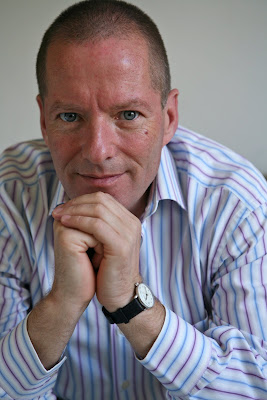University of the People: Expanding the Global Reach of Higher Education
I've got an incredible venture to share with our Wandering Educators today. The University of the People (UoPeople) is a new online educational venture that spans the globe! UofPeople is a new way to visualize higher education - in a global context. Shai Reshef is the Founder & President of University of the People, and the Chairman of the Board for Cramster.com. Reshef holds an MA from the University of Michigan in Chinese Politics. Fast Company magazine named Reshef one of the most creative people in business for 2009. I can see why - UoPeople is an extraordinary opportunity for students around the world to further their education.

We were lucky enough to sit down and chat with Shai, about UoPeople, the leadership involved, intercultural issues, and more. Here's what he had to say...
WE: Please tell us more about the University of the People...
SR: University of the People (UoPeople) is the world’s first tuition-free, online academic institution dedicated to the global advancement and democratization of higher education. The high-quality, low-cost and global educational model embraces the worldwide presence of the Internet and dropping technology costs to bring university level studies within reach of millions of people across the world. With the support of respected academics, humanitarians and other visionaries, the UoPeople student body represents a new wave in global education.
WE: What was the genesis of UoPeople?
SR: After twenty years in the international education arena, I discovered one issue that unites countries, cities and states around the globe—the need for improved and accessible education. The knowledge I gained through my travels and various positions led me to establish University of the People (UoPeople). From 1989 to 2005, I served as Chairman of the Kidum Group, which I sold to Kaplan, a subsidiary of the Washington Post, and, between 2001 and 2004, I chaired KIT eLearning, the first online university outside of the United States.
Witnessing first-hand the power of eLearning and peer-to-peer teaching, I knew there was the potential to adapt these principles to create a high-quality, low-cost and global pedagogical model and subsequently established UoPeople. Access to quality higher education should be a right, not a privilege. UoPeople is a decisive step towards the democratization of higher education. This revolutionary nonprofit venture embraces open-source technology, collaborative learning and the worldwide presence of the Internet to bring the possibility of a college degree to even the most remote and poorest places on earth.

WE: UoPeople just had its first term, and is now heading into the second term (2/4/10). How was the inaugural class?
SR: Fantastic. The positive feedback we’ve received from our students is particularly gratifying and makes navigating through the myriad of obstacles and challenges even more worthwhile. We received a 90% approval rate from our own first term students.
WE: Who is involved in UoPeople?
SR: UoPeople’s scholastic leadership includes Provost Dr. David Harris Cohen (Columbia University), Department of Computer Science Chair Dr. Alexander Tuzhilin (New York University), Department of Business Administration Chair Dr. Russell S. Winer (New York University) and Associate Dean of General Studies Dr. Ruth Yakir (Kibbutzim College). Its world-renowned advisory committee includes Ms. June Arunga (Black Star Lines), Professor Jack Balkin (Yale) , Mr. Ryan Craig, J.D. (Bridgeport Education), Professor Daniel J. H. Greenwood (Hofstra University), Dr. Gabriel Hawawini (INSEAD), Mr. M. Humayun Kabir (Former Ambassador of the People’s Republic of Bangladesh to the U.S.), Dr. Abdul Waheed Khan (UNESCO), Dr. Mihai Nadin (University of Texas at Dallas), Dr. Y. S. Rajan (Confederation of Indian Industry), Dr. David Wiley (Brigham Young University), Dr. Russell S. Winer (New York University) and Ms. Esther Wojcicki (Creative Commons).
WE: What intercultural issues do your students face?
SR: UoPeople is truly a global classroom. We currently have over 300 students from 69 countries, which could arguably be called the most diverse university in the world.
Because of their vast array of backgrounds, students have the opportunity to interact with and learn from people of different cultures, ethnicities, religions and so on, which only enhances the educational experience.
WE: How do students interact?
SR: Within the online study communities, students share resources, exchange ideas, discuss weekly topics, submit assignments and take exams, with the support and guidance of respected scholars, peers and volunteer tutors. Each class has a closed forum in which students must participate on a weekly basis and an open forum where students have the option to delve into more in-depth questions and discussions related to the class topics.
WE: Is there anything else you'd like to share with us?
SR: Bringing high quality higher education to students around the world is certainly not a one man job. Everyone can help in little ways. Spread the word by going to http://www.uopeople.org/ where you can learn how to get involved, make a donation and join us on the path towards global, accessible higher education.
WE: Thanks so very much, Shai. The UoPeople is an extraordinary venture!
For more information, please see:
http://www.uopeople.org/
-

- Log in to post comments



















farsighted girl
What an inspiring concept! Education is truly the key to progress, I'm so glad that a university like this has been created.